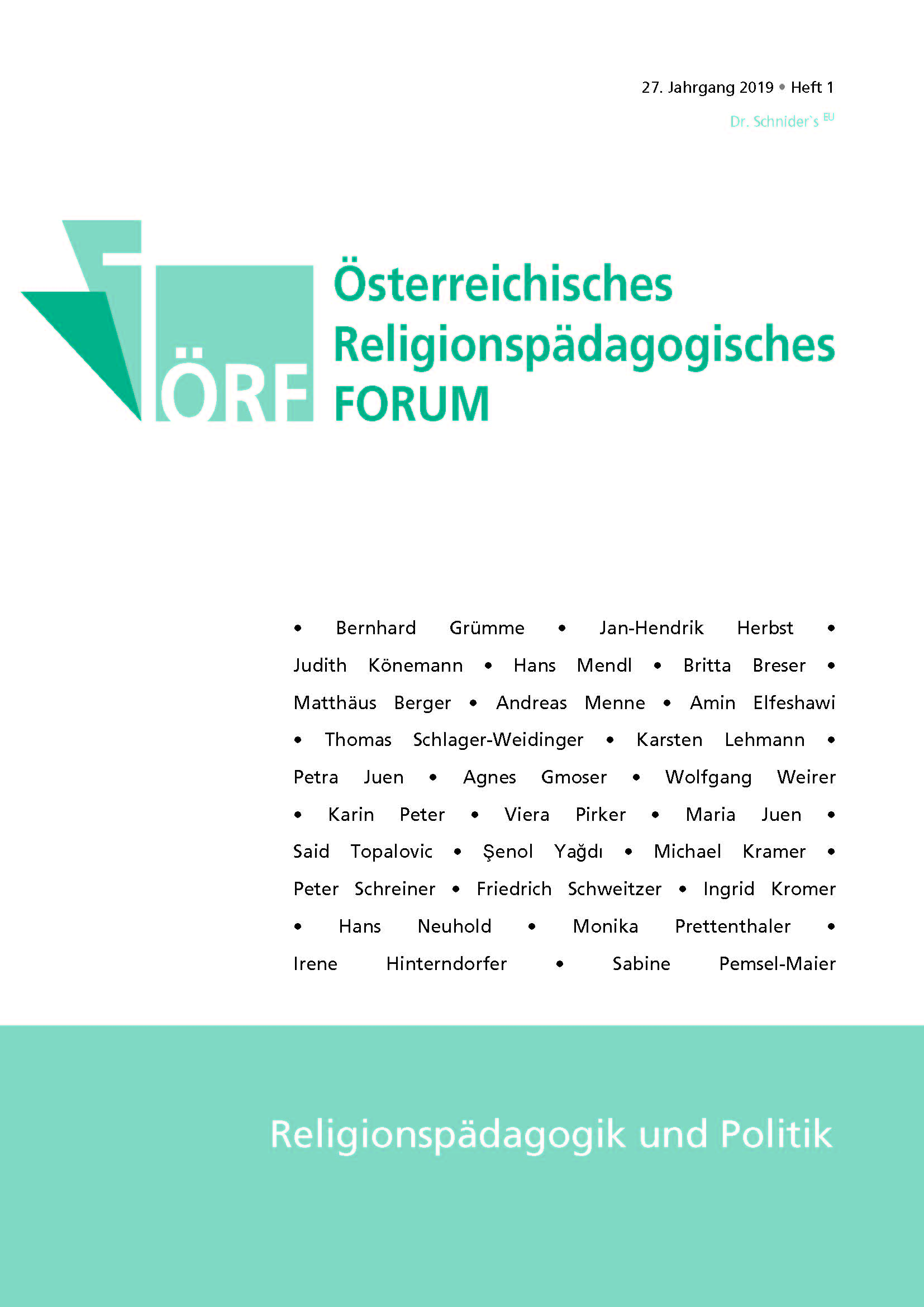Vol. 27 No. 1 (2019): Religious education and politics

The relationship between religion and politics is a key question of modern state conception. Interrelation between religious education and politics must be reflected in this context. A large part of religious education in the German-speaking world is governed by public law, and thus is part of political processes and decisions, such as religious education in public schools, theological faculties at public universities or the state recognition of private religious education institutions. A trend towards the legitimation of religious education in public schools was made visible on the basis of the considerations of the polity, for example when religious education at schools is supported by the argument of fundamentalism prevention. Thus the discussion about confessional kindergartens also raises the question of how the state should legitimize and regulate religious institutions (both public and non-public). Directly affected are also issues of religious freedom and tolerance. Religious education in schools and religious education itself have an immanent political task: Religions are part of the civil society and participate in political discourses. Political issues such as justice, poverty or peace are the same time concerns and questions of the religions. Therefore the question arises whether and in what way religious education must be able to participate in these civil society processes, which is also an issue of the formation of democracy. In short: How politically must religious education at schools be, when religions are part of public political life? It is also necessary to clarify wheter in day-to-day political questions are addressed in religious education processes and if religious educators should be politically positioned. In the light of the fact that members of religions are to be found throughout the political spectrum and that there is no consistency between religiosity and a certain political position. This involves both a fundamental, theoretical positioning of a scientific pedagogy of religion as well as concrete educational processes in schools, universities and municipalities, which point to a “political intended religious pedagogy” (Rickerts).
